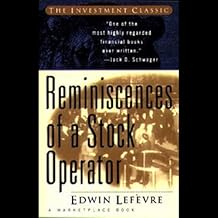
The Mom Test: How to Talk to Customers & Learn If Your Business Is a Good Idea When Everyone Is Lying to You
Rob Fitzpatrick and Robfitz Ltd
4.7 on Amazon
22 HN comments

High Output Management
Andrew S. Grove
4.6 on Amazon
9 HN comments

The Lean Startup: How Today's Entrepreneurs Use Continuous Innovation to Create Radically Successful Businesses
Eric Ries
4.6 on Amazon
9 HN comments

An Elegant Puzzle: Systems of Engineering Management
Will Larson
4.5 on Amazon
8 HN comments

The Lean Product Playbook: How to Innovate with Minimum Viable Products and Rapid Customer Feedback
Dan Olsen
4.7 on Amazon
5 HN comments

The Challenger Sale: Taking Control of the Customer Conversation
Matthew Dixon and Brent Adamson
4.5 on Amazon
5 HN comments

The Innovator's Dilemma: When New Technologies Cause Great Firms to Fail
Clayton M. Christensen, L.J. Ganser, et al.
4.5 on Amazon
5 HN comments

Good to Great: Why Some Companies Make the Leap and Others Don't
Jim Collins
4.5 on Amazon
4 HN comments

Mastery: The Keys to Success and Long-Term Fulfillment
George Leonard
4.6 on Amazon
4 HN comments

Inspired: How to Create Tech Products Customers Love (Silicon Valley Product Group)
Marty Cagan
4.6 on Amazon
4 HN comments

Capital: Volume 1: A Critique of Political Economy
Karl Marx, Derek Le Page, et al.
4.7 on Amazon
4 HN comments

Liftoff: Elon Musk and the Desperate Early Days That Launched SpaceX
Eric Berger
4.8 on Amazon
4 HN comments

Principles: Life and Work
Ray Dalio, Jeremy Bobb, et al.
4.6 on Amazon
3 HN comments

Reminiscences of a Stock Operator
Edwin Lefevre, Rick Rohan, et al.
4.6 on Amazon
3 HN comments

Traction: Get a Grip on Your Business
Gino Wickman
4.6 on Amazon
3 HN comments
eatonphilonJune 20, 2021
I do agree The Manager's Path is a good one though.
Some other favorites are High Output Management by Andy Grove, Managing Transitions by William Bridges, The Toyota Production System by Taiichi Ohno, Measure What Matters by John Doerr, Peopleware by Tom DeMarco, The Innovator's Dilemma, etc.
coderintheryeonJune 6, 2021
If you are also leading product, then "The Principals of Product Development" is an excellent book.
If you are tasked with research and innovation then "The Innovator's Dilemma" is a must read.
Happy to share more recommendations if you get in touch.
adaisadaisonJune 29, 2021
My personal recommendations are to read “The Innovator’s Dilemma” by the late Clayton Christensen and “Ecclesiastes” (ESV for Native English speakers) by Koholet.
“The Innovator’s Dilemma” has had a major impact on me. Keep moving the ball forward and keep finding the biggest market despite what your current market thinks.
“Ecclesiastes” is a great reminder that we will all die and it is good to be apart in the present. To innovate. To make things better regardless if we will live to see the positive impact or not.
Both are honestly great books about life in general too.
toomuchtodoonMay 16, 2021
Support apprenticeships and on the job training alongside online courses and universally accessible community college.
btillyonMay 11, 2021
Oh really?
_The Innovator's Dilemma_, written 20 years ago, includes a chapter based on an industry analysis that said that on current technology trends, mass electric cars would come viable around 2020. Guess what? Around 2020 mass electric cars became viable! Elon Musk figured out that high end electric sports cars could become viable earlier, and built a company around it.
How about those reusable rockets? https://en.wikipedia.org/wiki/Reusable_launch_system documents a history of attempts at making reusable systems literally from the dawn of the Space Age. Everyone knew that in theory it should be possible. The problem was that in practice they didn't work well enough. (For example the Shuttle wound up costing more per "reusable launch" than an expendable rocket would have.) What SpaceX perfected is a vertical suicide burn. It is called a suicide burn because there is no margin of error, and any mistakes /will/ kill you. But it is also the most efficient way to land the rocket. Nobody did it before Musk because nobody was willing to trust their software control system that much. And even still, when humans take a trip on Dragon we /don't/ trust their skills at a suicide burn for the return. We instead parachute into the ocean, just like Alan Shepherd did 60 years ago. (Elon hopes, of course, that Starship will change that.)
So your comment critiquing humanity by critiquing all of the experts who failed to do back of the napkin math showed more about your ignorance than the ignorance of the experts.